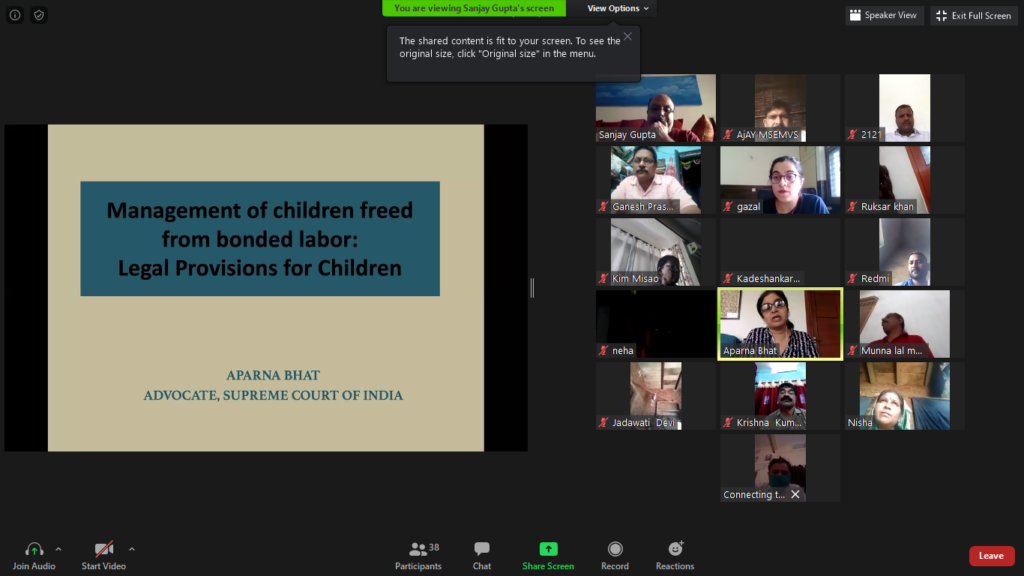The COVID-19 global pandemic has disrupted anti-trafficking work around the world. But the Free the Saves India team has continued to press ahead with vital online advocacy training that builds bridges between communities and government officials.
FTS work in India has been focused on the creation and training of District Bonded Labor Vigilance Committees. Their job is to ensure that India’s ban on bonded labor slavery is enforced at the grassroots level.
Recently, our India partner organization MSEMVS brought together 81 trainees from communities, civil society organization and government agencies for two days of digital training. The sessions focused on establishing standardized operating procedures for the vigilance committees, to ensure the committees serve as agents of change uniformly, no matter which village or region is involved.
The trainees discussed how to conduct field rescues and how to help bonded labor slavery survivors recover and restart their lives in freedom. A special emphasis was placed on the rules for children who are liberated for slavery, and how they should receive an extra measure of care.

The session concluded with an assessment of the impact that COVID-19 is having on families who are vulnerable to human trafficking. Experts noted that the pandemic is harming livelihoods on a significant scale, forcing more and more people to borrow money and then toil in slavery because of the debt.
Front-line advocacy training has traditionally been conducted face to face, with longer workshops and smaller working groups. But the switch to Zoom was a remarkable success. Before the digital training began, participants on average scored 68 percent correct on a pre-workshop knowledge test. Scores jumped to 94 percent after the Zooms.
Learn more about our work in India on our India program webpage. Learn more about how FTS programs are adapting to the COVID-10 pandemic here.



